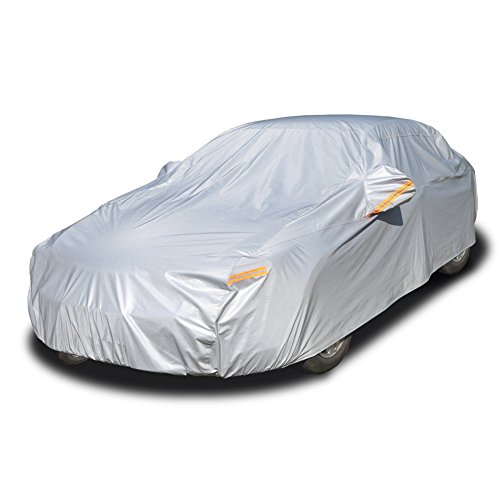If you have overfilled your gas tank and spilled gasoline on your car, you may be wondering if it can damage your paint. It's important to know if gasoline will damage your car's paint so that you can take the necessary steps to avoid any potential problems. Let's take a look below at whether or not gasoline will damage your car's paint.
The majority of modern cars have a clear coat finish, which is a clear layer of paint that helps to protect the color coat beneath it. While it won't damage the paint immediately, gasoline can break down the clear coat finish over time if it's not removed. If you do spill gasoline on your car paint, follow these steps:
- Fill a bucket of water.
- Put an ample amount of car soap in the bucket.
- Use a sponge to clean off the gasoline.
- Rinse with water.
- Dry the area.
- Apply a protective wax coating.
As you can see, it's important to clean off any gasoline that gets on your paint as soon as possible. In this article, we will discuss why gasoline can damage car paint and give recommendations on how to clean it off. In addition, we will answer other frequently asked questions about protecting your car paint, so read on!
![silver vehicle's fuel cap. - Does Gas Damage Car Paint? [And How To Clean It]](https://vehq.com/wp-content/uploads/2022/09/silver-vehicles-fuel-cap.-Does-Gas-Damage-Car-Paint-And-How-To-Clean-It.png)
Can Gasoline Damage Car Paint?
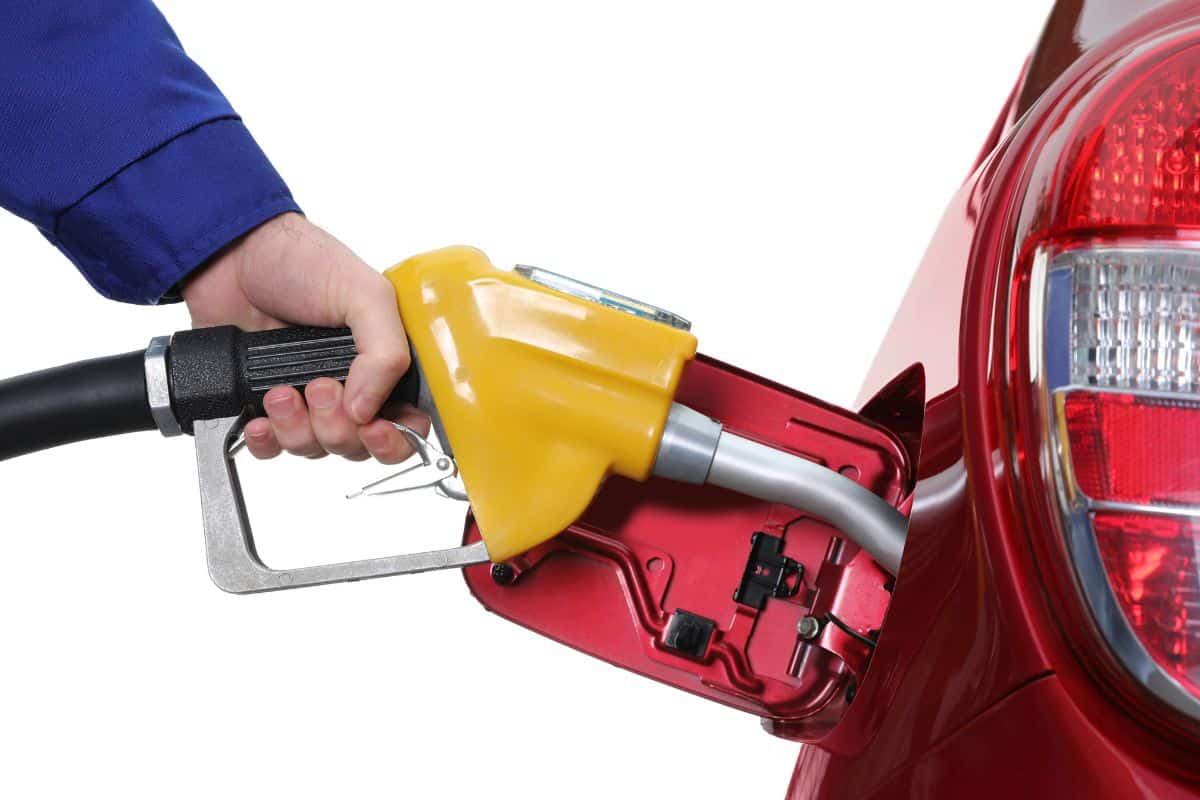
Cars have a protective clear coat layer over the paint. While this clear coat does a good job of being resistant to most chemicals, it can be damaged by gasoline.
Gasoline is made up of a variety of chemicals, including benzene. Benzene is known to break down the clear coat on cars. If you spill gasoline on your car and do not clean it off promptly, it could lead to the clear coat breaking down and eventually flaking off.
While this won't happen immediately, if the gasoline sits on the paint for an extended period of time, it will eventually cause problems. If you have spilled gasoline on your car, it's important to clean it off as soon as possible.
One of the simplest ways to do this is to mix a bucket of water with car soap and use a sponge to clean off the area. Once you have removed the gasoline, be sure to rinse the area with water and dry it off.
To help protect the paint, you can also apply a wax coating. This will create a barrier between the paint and any potential contaminants. You can also run your car through a car wash, which will help to remove any residual gasoline and protect the paint.
If you are still concerned about the gasoline damaging your car paint, you can always take it to a detailer or body shop and have them clean it off for you.
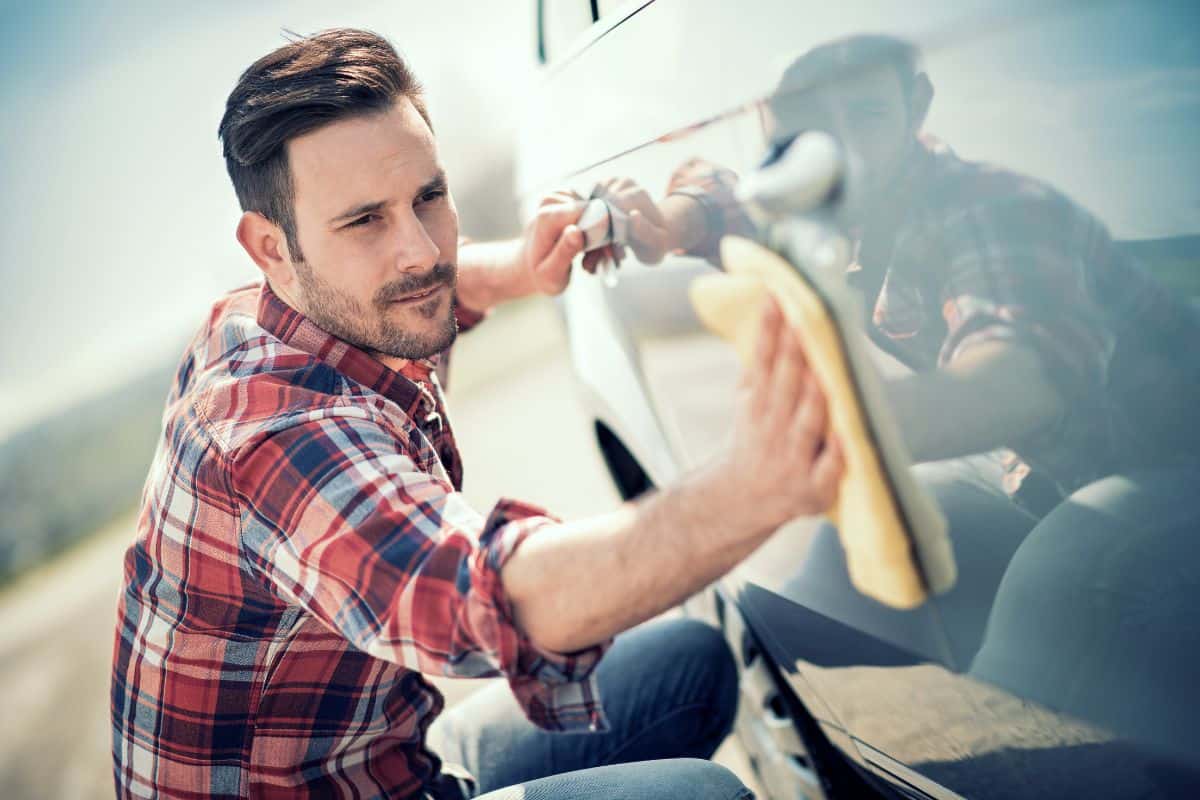
Can Gasoline Damage Car Tires?
In addition to gasoline damaging car paint, it can also damage car tires. Gasoline is a solvent and can break down the rubber in your tires.
If you spill gasoline on your tires, it's important to clean it off as soon as possible. You can clean your tires the same way you would clean your car paint.
Gasoline isn't the only thing that can damage your car tires. Oil and antifreeze can also break down the synthetic rubbers in your tires.
To avoid any potential problems, it's important to clean off any fluids that spill on your tires right away. You should also inspect your tires regularly for any signs of damage and have them replaced when necessary.
If you notice your tires are starting to show signs of wear, it's important to take them to a mechanic or tire shop and have them inspected.
How Can You Protect Your Car Paint?
If you are worried about gasoline or other fluids damaging your car paint, there are a few things you can do to protect it.
One of the best ways to protect your car paint is to regularly wash and wax it. This will create a barrier between the paint and any potential contaminants.
Depending on the road and weather conditions you drive in, you may need to wash and wax your car more or less frequently. If you live in an area with a lot of salt on the roads, you will need to wash and wax your car more often to prevent the salt from damaging the paint.
In addition to washing and waxing your car, you can also use a sealant or ceramic coating. These products create a thicker barrier between the paint and any potential contaminants.
Applying a sealant or ceramic coating is more time consuming than washing and waxing, but it will provide better protection for your car paint. If you are worried about your car paint being damaged by fluids, a sealant or ceramic coating is a good option.
It is also good to park your car in a garage or under a carport. Bird droppings or tree sap can also damage your car paint, so parking in a protected area will help to keep your car paint in good condition. If you don't have a garage or carport, you can purchase a car cover to protect your car from the elements.
Click here to see this car cover on Amazon.
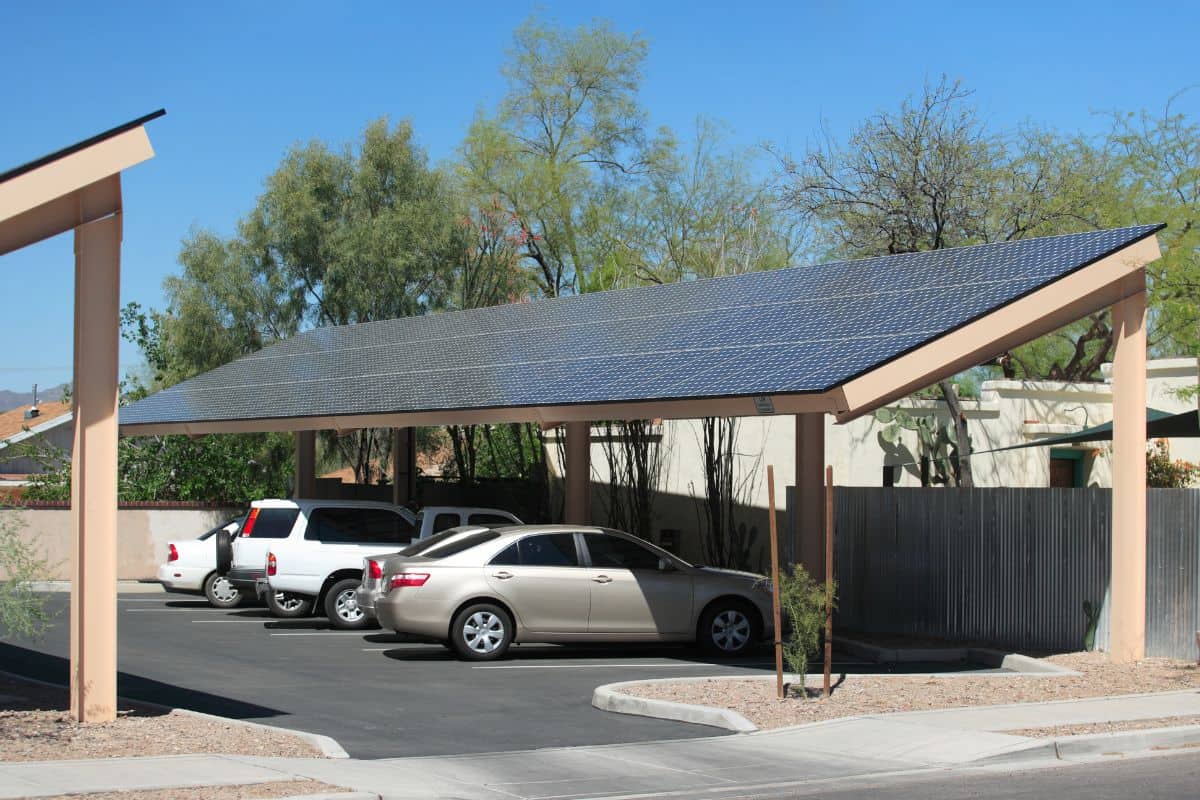
What Happens If You Overfill Your Gas Tank?
Not only will overfilling your gas tank damage your car's paint, but it can also damage your car's engine. The overfill can cover the vapor intake system and cause your car to run less efficiently. In some cases, it can also cause the car to stall or not start at all.
If you overfill your gas tank, the best thing to do is turn off your engine. By letting the car sit, the excess gasoline will drain back into the tank.
Once the gasoline has drained back into the tank, you can start your car and continue driving. Since gas stations have a stop on the nozzle to prevent overfilling, it's important to be careful when filling up your tank manually
For example, if you are using a gas can to fill up your tank, you will need to stop before the gas tank is completely full. This will prevent the gas from spilling out and damaging your car paint.
How Often Should I Wax My Car?
In order to keep your car paint in good condition, you should wax it at least twice a year. However, if you live in a region where you have four seasons, you should wax your car more often.
For example, waxing your car before and after winter is a good idea. This will help to protect your car's paint from the salt and other chemicals that are used to melt ice on the roads. This way, if you do spill gasoline or other fluids on your car's paint, you can quickly clean it off and prevent any damage.
If you have any questions about how to protect your car's paint or what products to use, you should consult a professional. A professional detailer or body shop will be able to advise you on the best way to protect your paint job and keep it in good condition.
Can WD-40 Damage Clear Coat On A Car?
WD-40 was originally made to protect metal from rust and corrosion, so it is safe to use on your car. You can use WD-40 on your car paint if you are worried about fluids damaging it. However, you should not use WD-40 as a regular part of your car care routine.
If WD-40 sits on the paint for too long, it can start to break down the clear coat. This will leave your car paint susceptible to damage from fluids and other contaminants. If you do use WD-40 on your car paint, be sure to wash it off as soon as possible.
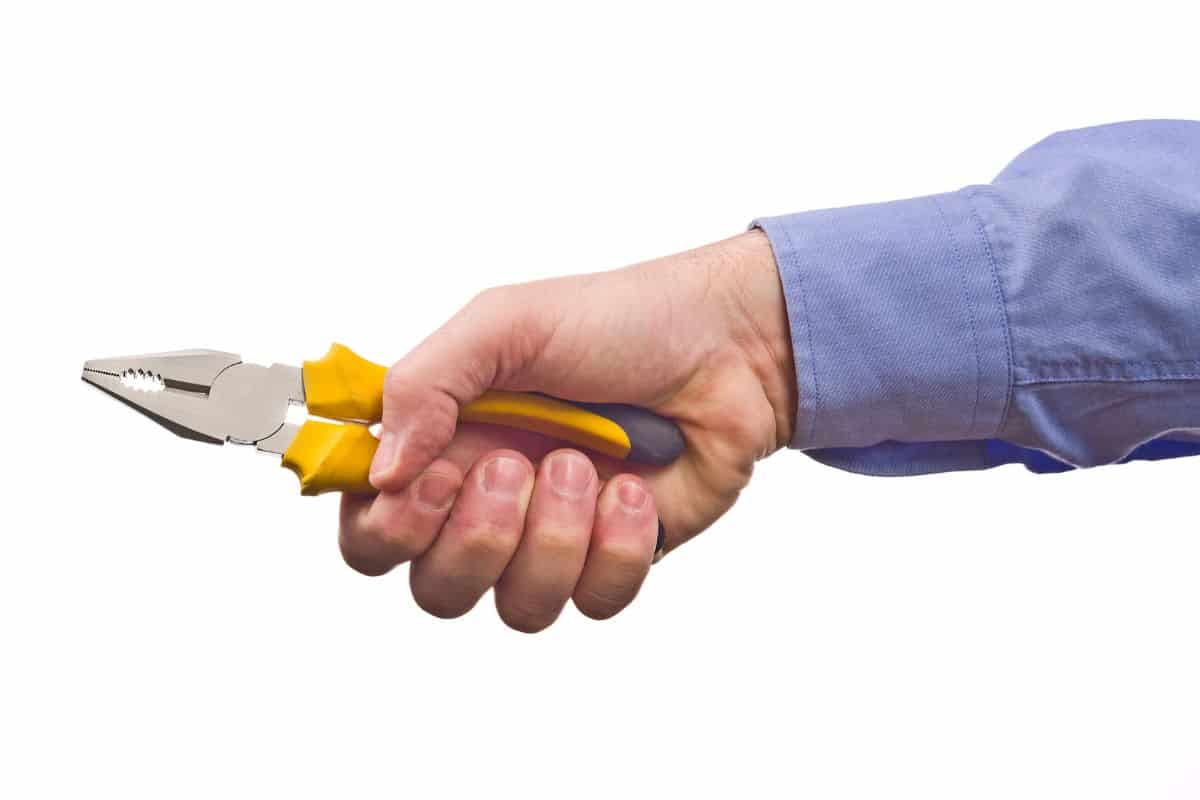
What Eats Away At Car Paint Fast?
Gasoline isn't the only thing that can damage your car paint. Let's take a look at other things that can eat away at your car paint.
Bugs
It's common to have bugs splattered on the bumper and hood after a drive, and while it may not look nice, it can also eat away at your car paint.
The reason being is that bugs are acidic. When they sit on your car paint, they can start to eat away at the clear coat. If you don't remove them quickly, they can cause permanent damage to your car paint.
To remove bugs from your car paint, you should use a bug and tar remover. This will help to prevent any damage to your paint job.
Click here to see this bug and tar remover on Amazon.
Bird Droppings
Bird droppings are also acidic, so they can damage your car paint if they are not removed quickly. This is especially true if the bird droppings harden in the sun.
You can either remove the bird droppings yourself with an at-home car wash or by going to a car wash.
Tree Sap
Avoid parking under trees, as the sap can fall on your car and damage the paint. Not only can tree sap eat at your car paint, but it can also stain it. Like the other contaminants, you'll want to remove the sap as soon as possible.
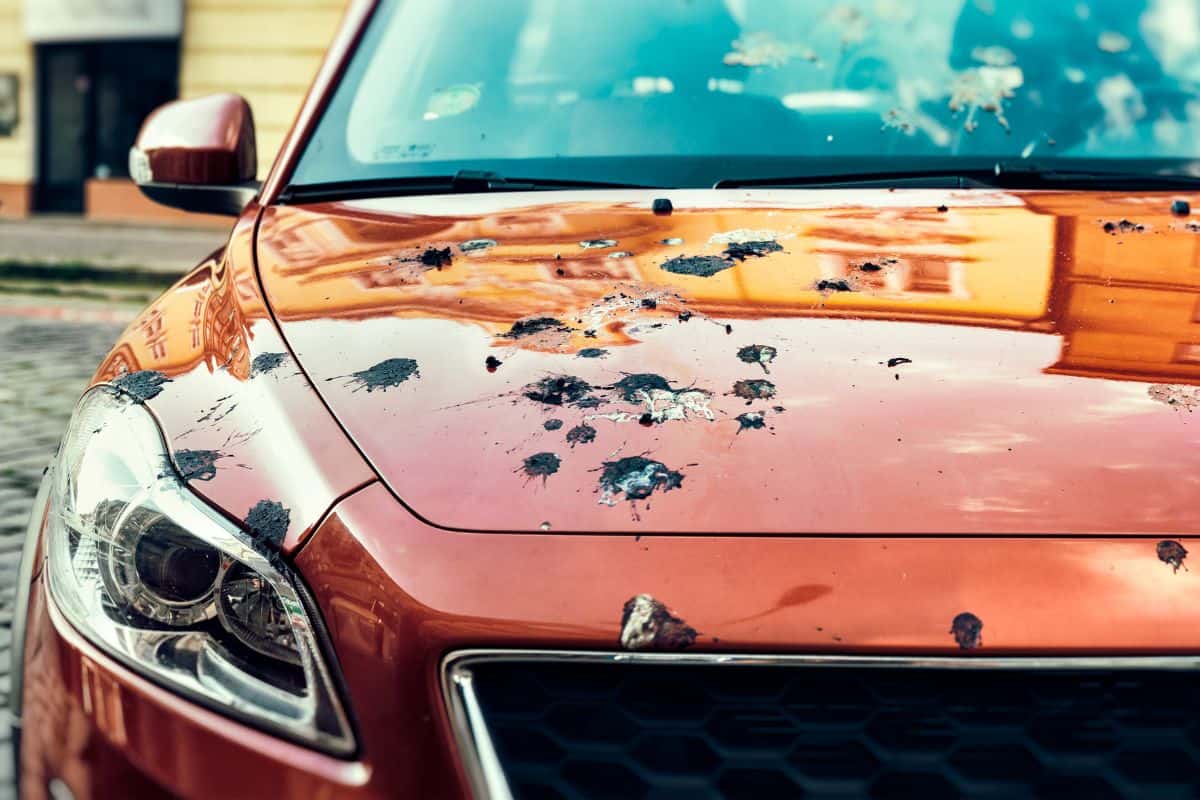
Final Thoughts
No matter if it's gasoline or something else, it's important to clean off any fluids that spill on your car paint. The sooner you remove the fluid, the less chance there is of damage.
If you have any questions about car care or detailing, talk to a professional detailer. They can assist you with ways to clean and protect your car paint.
Made it to the end? Here are other articles that might be helpful:
How To Remove Glue From Car Paint [Inc. Gorilla Glue And Superglue]

